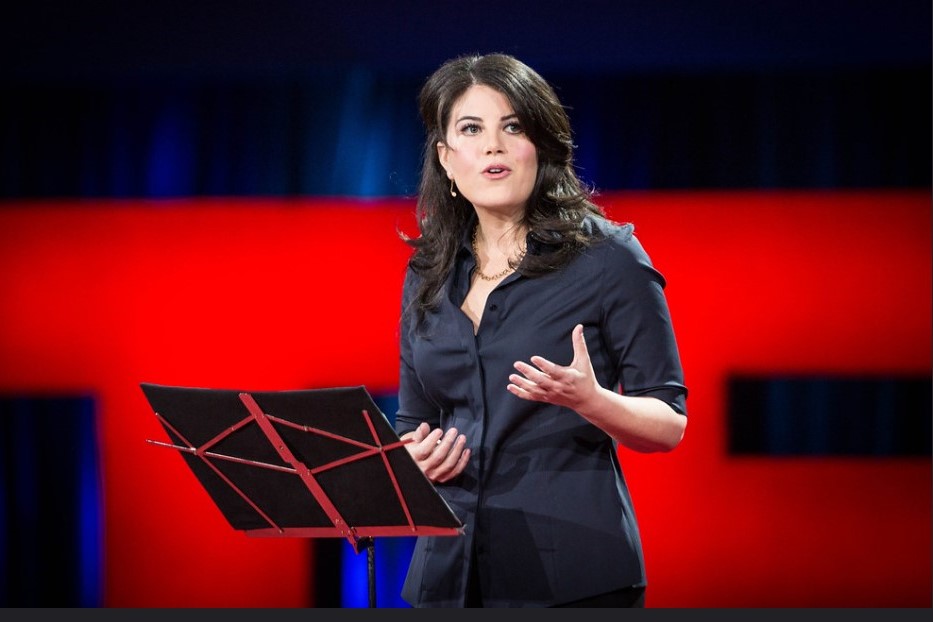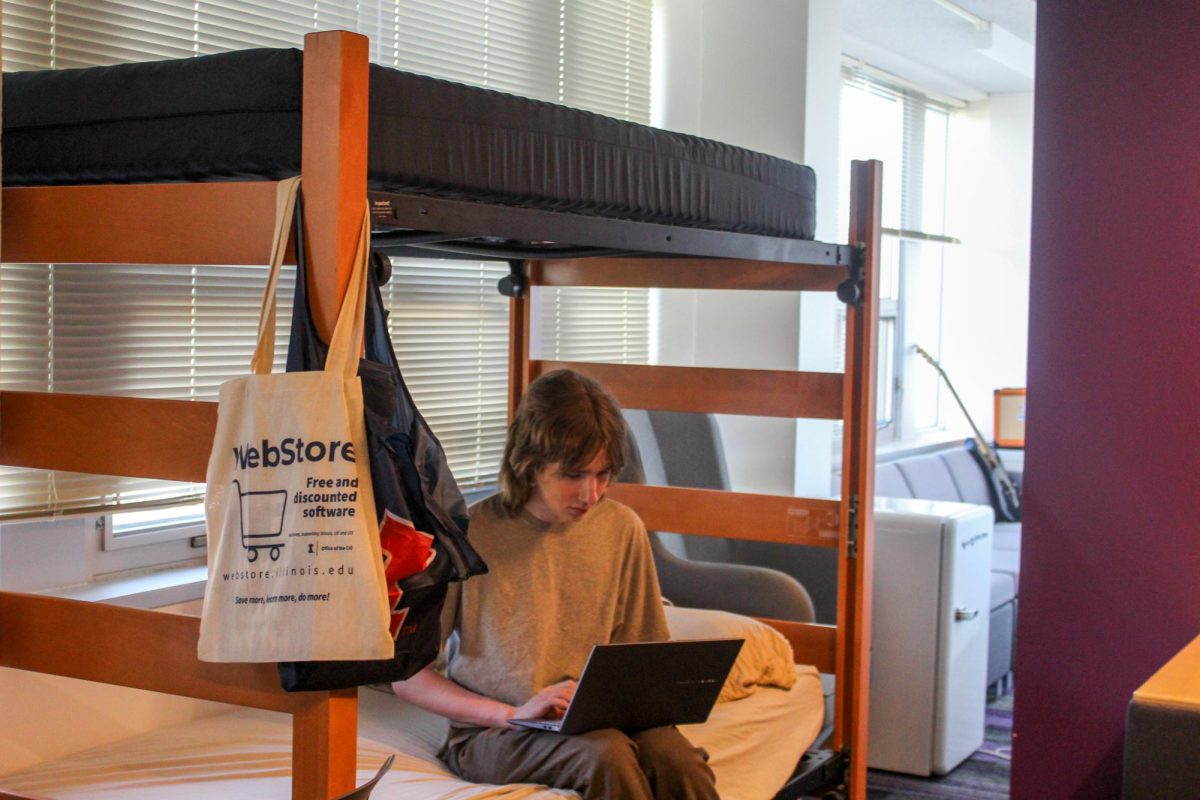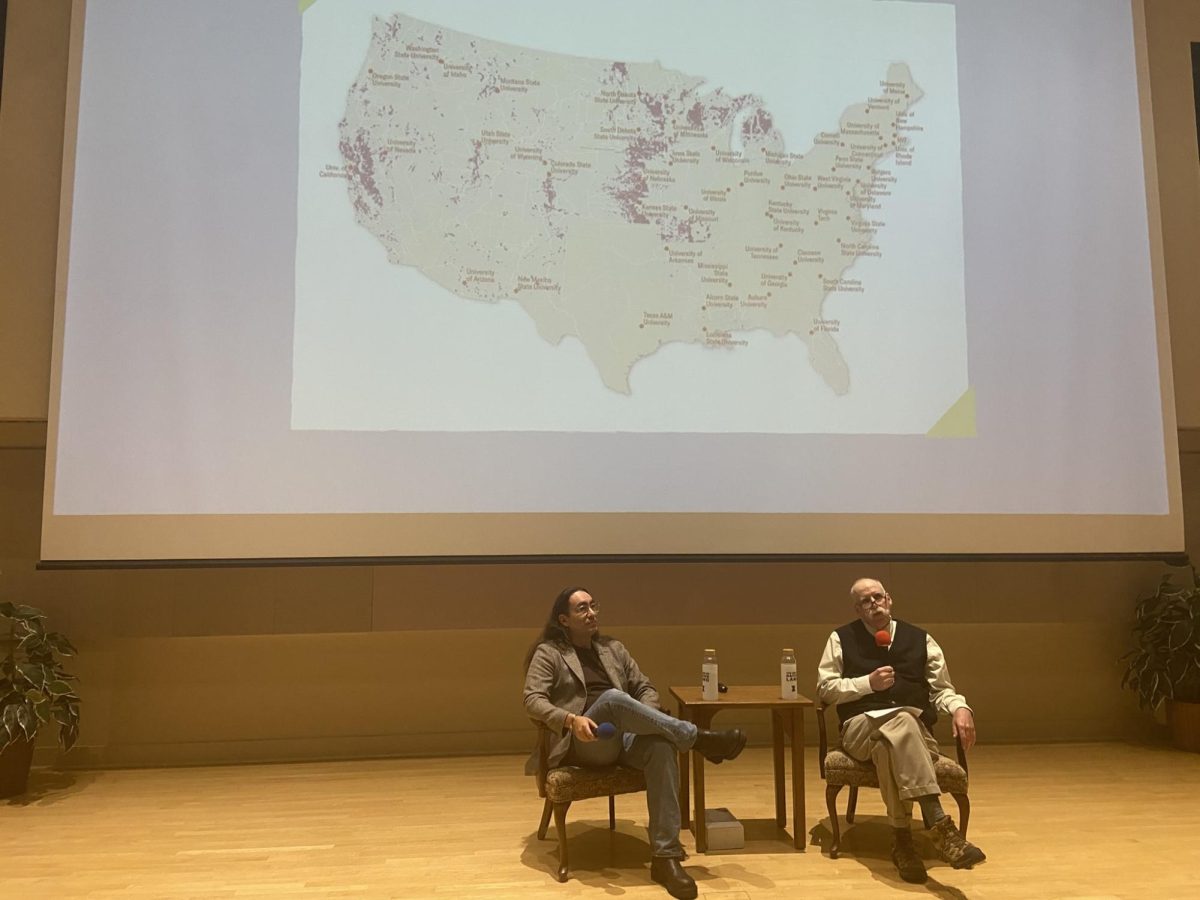Students hoping to hear from Monica Lewinsky formed a line wrapping throughout the Union on Monday night. Invited by the Illini Union Board, Lewinsky spoke on cyberbullying, shame and humiliation in the online space.
Lewinsky was thrust into the public eye when she was a White House intern during the Clinton administration due to her relationship with the then-president. She is currently a Vanity Fair contributor, public speaker and anti-bullying activist.
“In 1998, after having been swept up in this improbable romance, I was then swept up into the eye of a political, legal and media maelstrom like we’ve never seen before,” Lewinsky said.
The media landscape at the time was rapidly changing due to the growing influence of the internet.
“Thanks to the Gulf War and the OJ trial, we were now acclimated to this idea of 24-hour news,” Lewinsky said. “But the internet meant … that news not only (came) from everywhere but it then could be transmitted everywhere too.”
Get The Daily Illini in your inbox!
As a result, Lewinsky came under a level of public scrutiny that was previously unknown.
“I went to bed one night, a private person … and I awakened the next morning known by almost the entire world,” Lewinsky said. “I was patient zero of losing a personal reputation on a global scale instantaneously.”
Lewinsky became a target for news outlets, talk shows and “virtual stone throwers.”
“When this happened to me 26 years ago, there was no name for it,” Lewinsky said. “Now we call it cyberbullying, slut shaming and online harassment.”
In 2014, Lewinsky broke her self-imposed exile in Vanity Fair, hoping to reclaim her narrative and incite change after more than a decade of silence.
Lewinsky cited 18-year-old Tyler Clementi’s 2010 suicide as placing her experience in a broader context. Clementi, a Rutgers student at the time, was non-consensually filmed kissing another man and publicly shamed on social media.
“For nearly three decades now, we’ve slowly been sowing the seeds of shame and public humiliation in our cultural soil, both on and offline,” Lewinsky said. “So if you think about gossip websites, paparazzi, reality programming, politics, news outlets and sometimes even hackers, they all traffic in shame.”
This behavior, Lewinsky added, has created a “culture of humiliation” where cyberbullying, trolling and online harassment occur frequently.
Riya Patel, junior in Gies, who attended the talk, said Lewinsky’s topic could be particularly relevant in a university setting.
“If you were to see harassment on social media, it would get more blown out of proportion, especially with college students who are more likely to be immature about certain things,” Patel said.
Nora Duffy, junior in LAS, agreed with Patel and included how Lewinsky’s discussion of mental health pertains to the younger generation.
“A big part of her talk was humiliation and mental health and her struggles with mental health. I think that college students are a very big target for that,” Duffy said. “She was at a very similar age group to us.”
Lewinsky said it is time for an “intervention on the internet and in our culture.” This shift, she said, begins with the simple act of returning to values of compassion and empathy.
“Because online, we’ve got a compassion deficit, or an empathy crisis,” Lewinsky said. “I’ve seen some very dark days in my life, and it was empathy and compassion from my family, friends, professionals and sometimes even strangers, which helped save me.”
Lewinsky cited one instance when someone wrote an obnoxious comment about her. After looking at his profile, one of her followers discovered that he had recently lost his wife.
“(The follower) tweeted out some expression of compassion towards him … I followed suit, and this man ended up apologizing,” Lewinsky said.
“It kind of just shows if we all give each other a little bit more compassion, then there’s only positive things that can come out of that,” Duffy said about Lewinsky’s anecdote.
While Lewinsky acknowledged technology can connect people in unimaginable ways, she believes that individuals must recognize their responsibility with freedom of speech.
“We can all together make a society where the sometimes distancing effect of technology doesn’t impact and take away our humanity,” Lewinsky said. “We need to communicate online with compassion, consume news with compassion and also click with compassion.”








